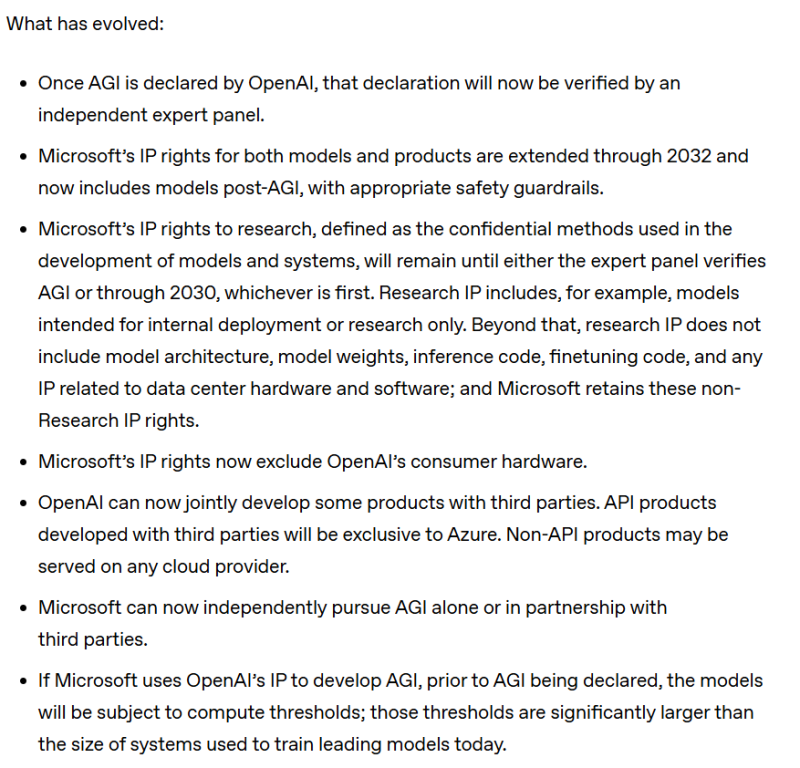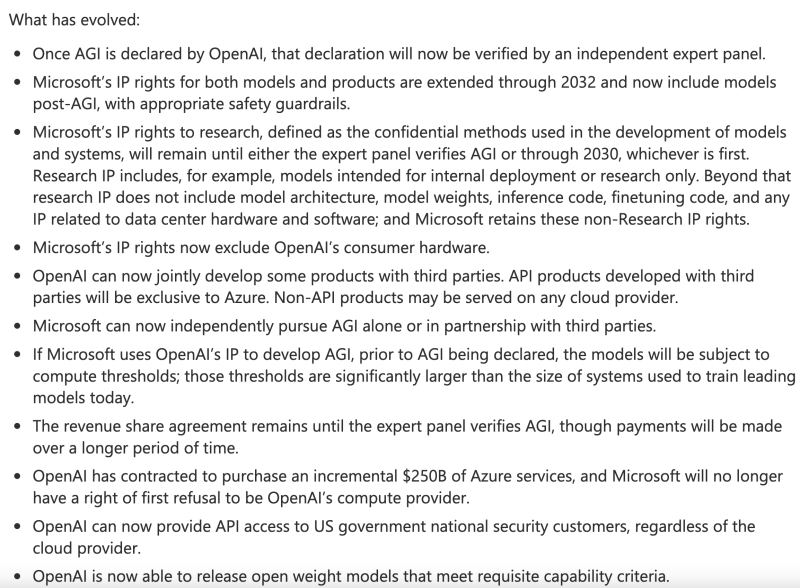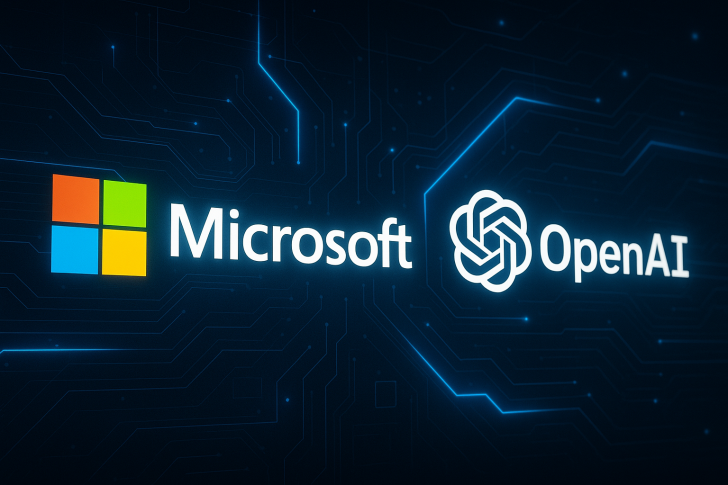● Microsoft and OpenAI have reworked their partnership in ways that could define the AI industry for years to come. Microsoft now owns about 27% of OpenAI — roughly $135 billion worth — and has locked in a $250 billion Azure contract that keeps OpenAI dependent on Microsoft's infrastructure for the foreseeable future.
● The new terms change how AGI gets recognized. Instead of OpenAI deciding on its own when AGI has been achieved, an independent panel of experts will now verify any such claim. That strips OpenAI of unilateral control over one of the most consequential milestones in tech history.
● Microsoft's intellectual property rights got a major upgrade too. The company keeps full ownership of everything built before AGI is confirmed — models, training systems, deployment tools, all of it — with those rights lasting through 2032. Even after AGI is declared, Microsoft retains control over the foundational tech that came before it. As Chubby pointed out, this means Microsoft holds the keys to the core AI infrastructure no matter what happens next.

● On the business side, the Azure exclusivity clause ensures that OpenAI's API products stay on Microsoft's cloud until AGI verification. Non-API solutions might eventually branch out to other providers, but the main engine runs through Azure. Microsoft also gained the right to pursue its own AGI development, either solo or with outside partners — a subtle but meaningful shift toward independence.
● Industry watchers see this as Microsoft cementing its dominance while hedging against uncertainty. "Until OpenAI officially declares AGI, Microsoft retains full rights to current models and integrations," underscoring just how much leverage Microsoft has built.

● As Amit put it, this isn't just a financial deal — it's the scaffolding for what comes next. "We are all living through one of the most exciting technology revolutions of all time," he wrote, capturing the stakes of a partnership that could shape the future of intelligence itself.
 Eseandre Mordi
Eseandre Mordi

 Eseandre Mordi
Eseandre Mordi


